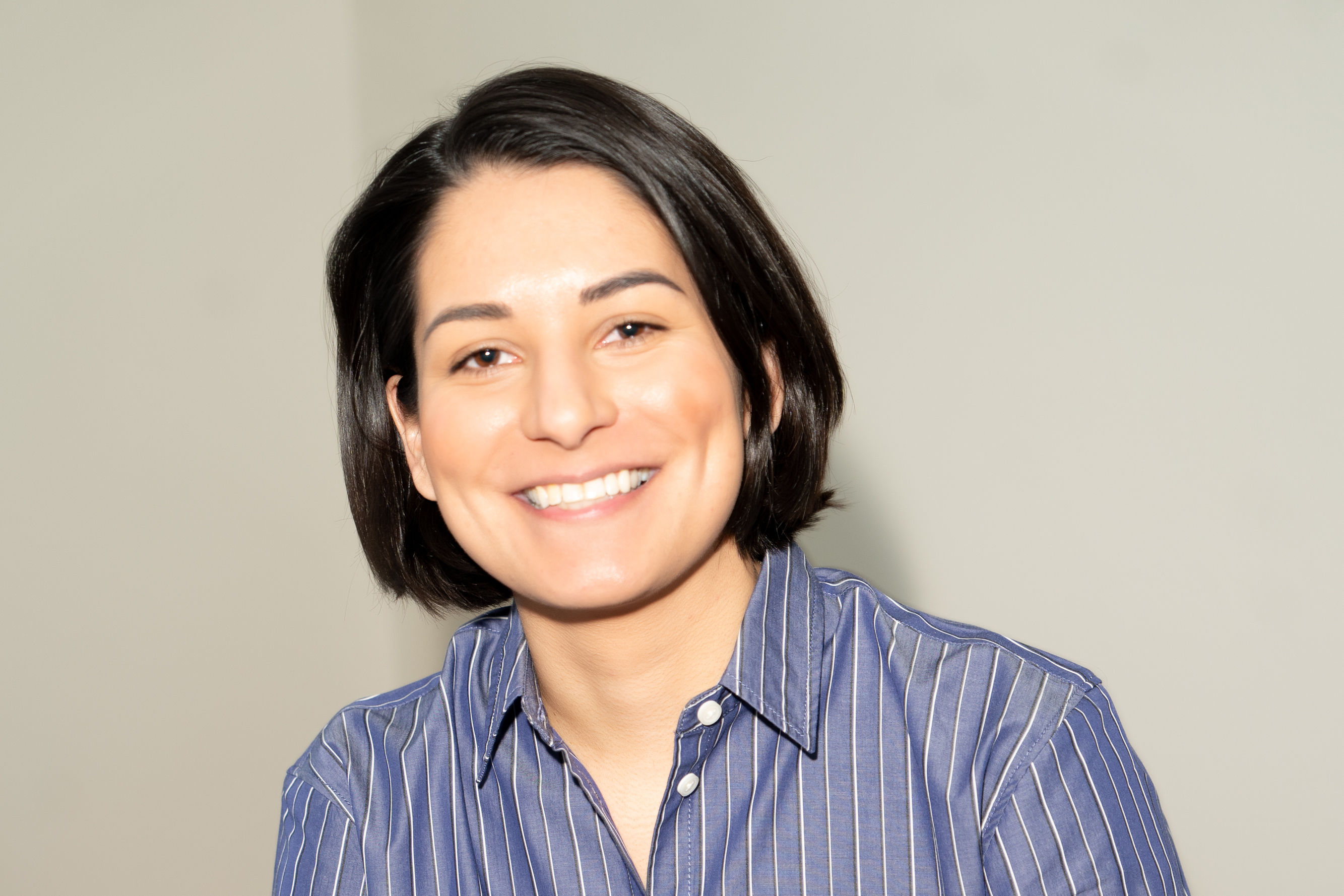Mitchell S. Jackson's 'The Residue Years'
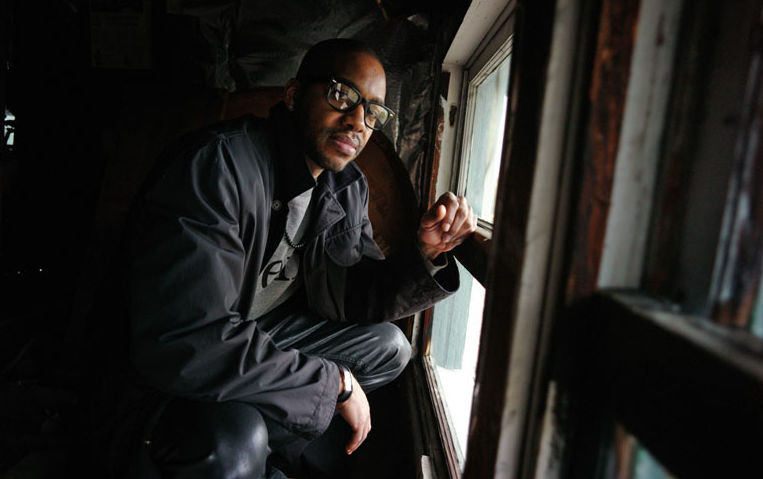
Image: Courtesy John Ricard
Writer Mitchell S. Jackson grew up in pregentrified, drug- and violence-blighted Northeast Portland from the ’70s through the early ’90s. As a teen, he’d hang out in a drug house and get lessons on hustling from one of the biggest dealers in the state—his uncle. Like many of his friends and relatives, Jackson did time in prison for selling crack. He could still be there. He could be dead. If not for one thing: Mitchell Jackson has always been stuck-up.
“No matter what I was doing, I always felt like I was better than that situation,” Jackson says.
Jackson’s half-brother and partner in crime, Wesley, remembers him as the nice guy in the game, reluctant even to defend himself. “He was always the guy who said, ‘No, I’m worried about karma,’” Wesley says. Case in point: when Mitchell got robbed at gunpoint, instead of trying to find and kill the perpetrator like many dealers would’ve done, he let it go. “I was like, my story is not going to be that somebody robbed me and I murdered them,” he says.
Instead, Jackson’s story has been one of a remarkable rise from at-risk youth and felon to author and professor. Today, the Brooklyn, N.Y.–based 38-year-old holds two master’s degrees. He teaches at New York University. And his debut novel, The Residue Years, comes out this month, followed this autumn by a documentary Jackson is producing with the Emmy-winning Ewers brothers about his journey from prison to publishing.
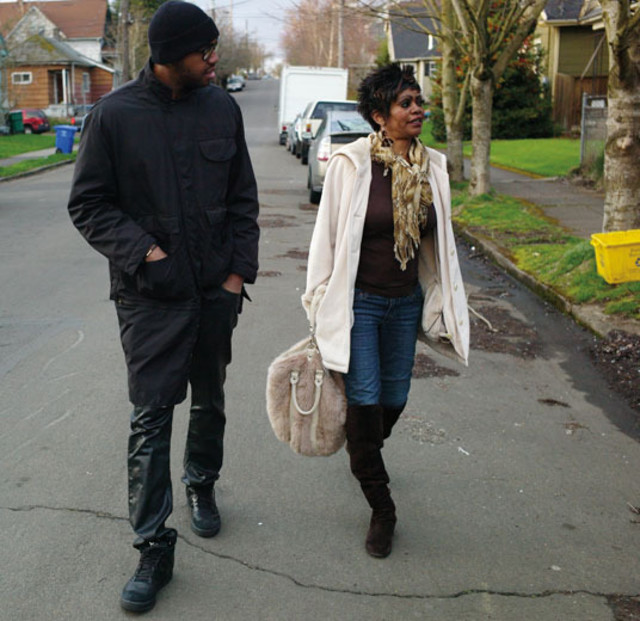
For a documentary about his journey, Jackson and his mother, Lillie, returned to his childhood home on NE Sixth Avenue.
Image: Courtesy John Ricard
Paraphrasing James Baldwin, Jackson calls The Residue Years “a story I had to tell if I was ever going to tell any other.” Based on his own life, the book chronicles the decline of one drug-ravaged Portland family in the ’90s, alternating between two characters: Grace, the mom, who’s fresh out of rehab and newly determined to overcome her crack addiction, and the Jackson-like Champ, Grace’s eldest, who, ironically, has started selling crack in hopes of making enough money to buy back the last house the family called home.
Jackson’s voice is defined by a striking juxtaposition of street smarts and book smarts: Champ quotes “your boy Nietzsche” and describes one woman’s rear as “an ass that could turn staunch assologists into teary-eyed swains.” The author’s prose is also marked by idiosyncratic description: overheated water is “a Fahrenheit to scald,” a fearful Champ’s eyes are “stabbing all directions.”
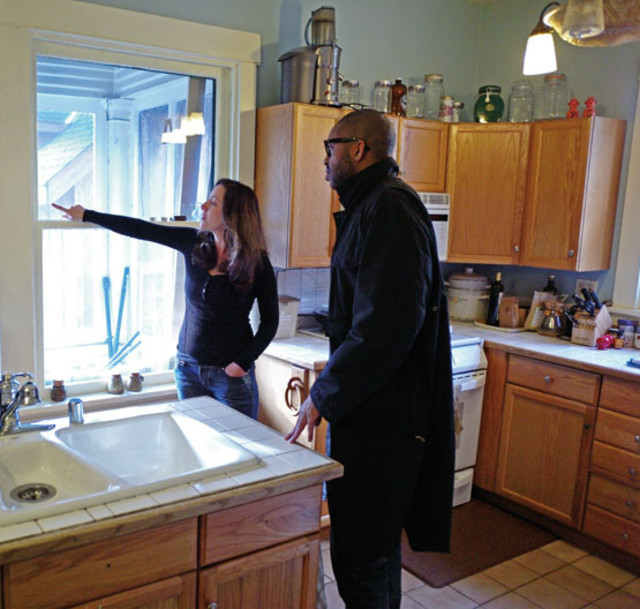
One of the current owners showed him where the original owner, Frank E. King, carved his name in the windowsill.
Image: Courtesy John Ricard
Reading such writerly turns of phrase, it’s hard to believe Jackson wasn’t composing poetry in the cradle. But when he applied to Portland State University’s then-brand-new graduate writing program at age 24 (he’d gotten his BA in speech communication at PSU, although he’d spent some of his tenure in prison), it wasn’t because he’d always wanted to be a writer. In fact, he had read all of five novels in his life. But he had read an online announcement for the program while writing news scripts for a local TV station. Again, like a self-fulfilling prophecy, it was Jackson’s sense of superiority that lifted him to greater heights. “I wanted to have a master’s degree—that was it,” he says. “It was kind of out of vanity.”
After spending his first year in the program playing catch-up, Jackson got a big confidence boost: one of his earliest stories was selected for inclusion in the respected African American literary anthology Gumbo. By graduation, he had discovered a genuine love for the craft, which he chased to New York in 2002 to pursue a creative writing MFA at New York University. All the while, Jackson was turning a pile of loose-leaf pages on which he’d scrawled his life story while in prison into The Residue Years. When he finally finished the manuscript in 2011, he sent it to his mentor, famed editor Gordon Lish. At first, Lish told him to throw it out, even saying, “If you publish this novel, its meagerness will be the measure of your mark on the world,” Jackson recalls. “It crushed me, but I was like, I can’t do that. If I have to work on this for another five years, I’m going to do it.”
Lish eventually changed his mind and connected Jackson with his current agent. They sent the manuscript to 17 publishers before getting a yes from Bloomsbury—and that only after getting a no. Kathy Belden, Jackson’s editor at Bloomsbury, initially passed on the novel. Then, in a highly unusual decision, she agreed to give it another read after meeting Jackson and hearing fragments of his life story. “I thought, this guy has come a long way, and he has something special to have gotten out of the cycle of poverty and drugs,” she says. Jackson used his advance for Residue Years to self-publish a collection of short stories and essays, Oversoul, which was excerpted in Vice magazine and then bought by Bloomsbury as his second book.
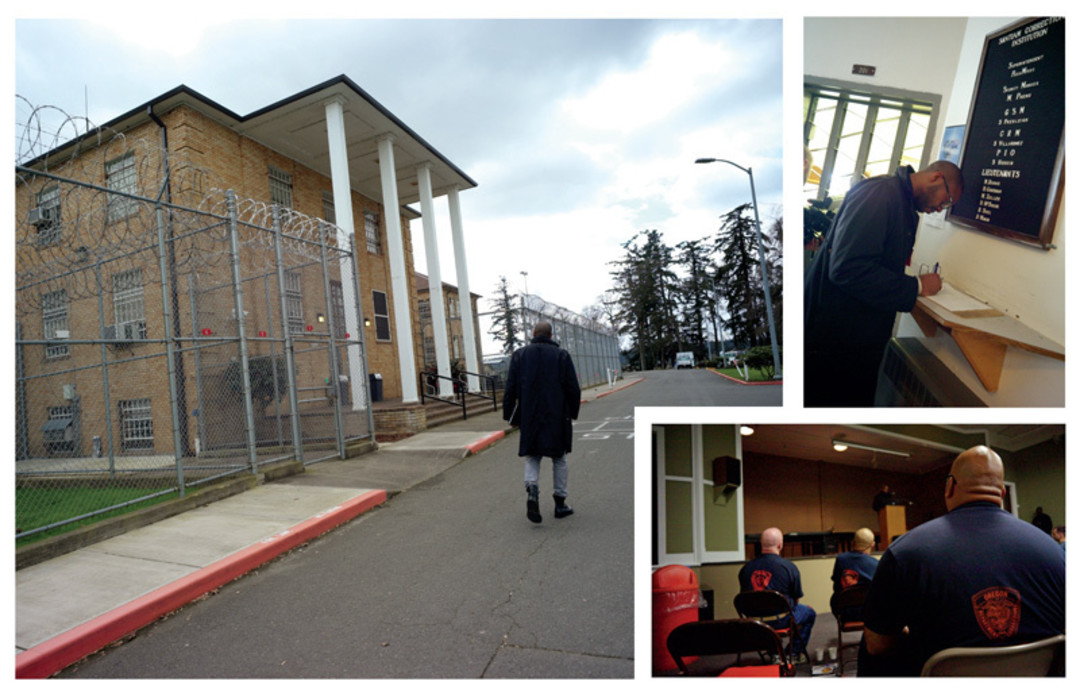
For the documentary, Jackson also visited Salem’s Santiam Correctional Institution, where he spent time for selling crack, for a reading and a Q&A with prisoners.
Image: Courtesy John Ricard
Once The Residue Years is released, Jackson says, the people he most hopes will read it are those with whom he shared a now-vanished Portland. “I’m writing this as a love letter to the people that I grew up with; I want them to read it and go, yeah, we did used to do that,” he says. “I think it’s important to tell this narrative because it’s lost; it doesn’t exist anymore. Those people are all out in Gresham.”
Or in prison. Earlier this year, as part of filming the documentary, Jackson visited one of his best friends—and his first drug supplier—in Snake River’s correctional facility, where he’s serving a 17-year sentence for manslaughter. Jackson also returned to the prison where he was incarcerated, Salem’s Santiam, for a reading. Several of the guys in the audience were kids he’d played basketball against in high school. After a standing ovation and during the post-reading Q&A, the inmates asked Jackson for advice on how to avoid winding up back in jail.
His answer? Decide you’re above your circumstances.
“I told them, I know what it feels like to walk across this yard. I know what it feels like to shoot on these pool tables behind us and know that the felt is bad and the table is slanted,” Jackson says. “There’s not a difference between you and me, except that I made a decision not to come back here.”
